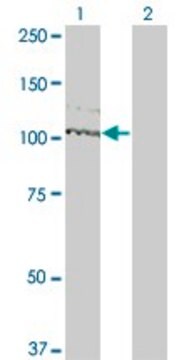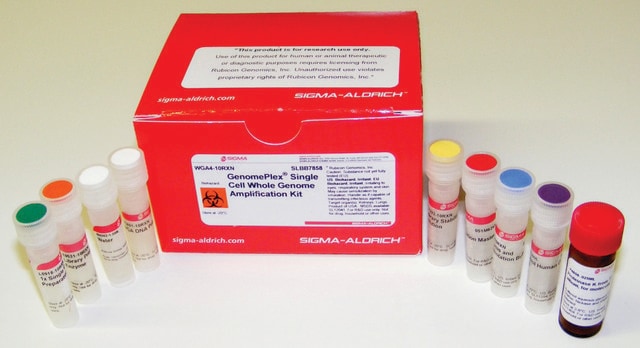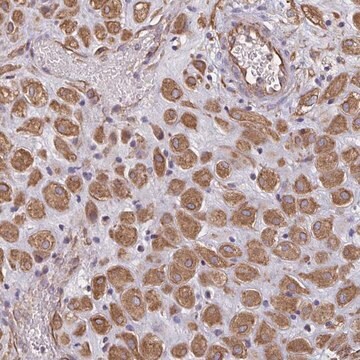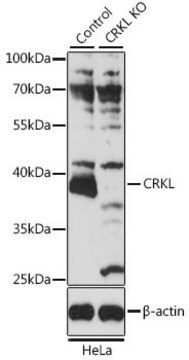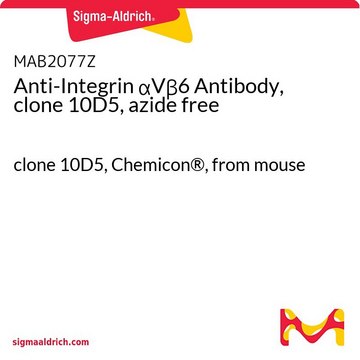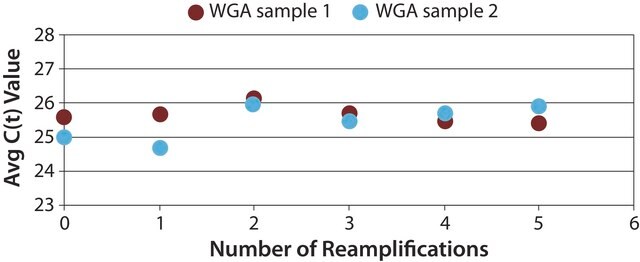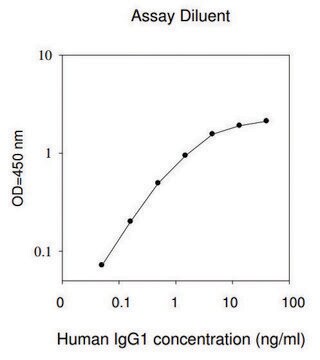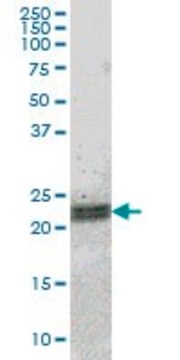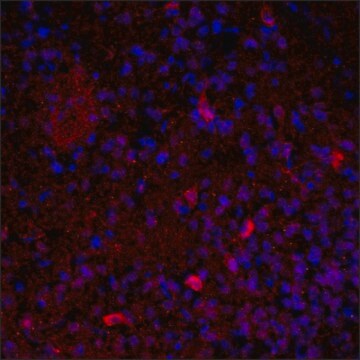SAB1412045
ANTI-KIT antibody produced in mouse
clone 2C3, purified immunoglobulin, buffered aqueous solution
Sinônimo(s):
C-Kit, CD117, KIT, PBT, SCFR
About This Item
WB
western blot: 1-5 μg/mL
Produtos recomendados
fonte biológica
mouse
Nível de qualidade
conjugado
unconjugated
forma do anticorpo
purified immunoglobulin
tipo de produto de anticorpo
primary antibodies
clone
2C3, monoclonal
Formulário
buffered aqueous solution
peso molecular
antigen 36.63 kDa
reatividade de espécies
human
técnica(s)
indirect ELISA: suitable
western blot: 1-5 μg/mL
Isotipo
IgG2bκ
nº de adesão NCBI
nº de adesão UniProt
Condições de expedição
dry ice
temperatura de armazenamento
−20°C
modificação pós-traducional do alvo
unmodified
Informações sobre genes
human ... KIT(3815)
Categorias relacionadas
Descrição geral
Imunogênio
Sequence
PGKSDLIVRVGDEIRLLCTDPGFVKWTFEILDETNENKQNEWITEKAEATNTGKYTCTNKHGLSNSIYVFVRDPAKLFLVDRSLYGKEDNDTLVRCPLTD
forma física
Não está encontrando o produto certo?
Experimente o nosso Ferramenta de seleção de produtos.
recomendado
Código de classe de armazenamento
10 - Combustible liquids
Ponto de fulgor (°F)
Not applicable
Ponto de fulgor (°C)
Not applicable
Escolha uma das versões mais recentes:
Certificados de análise (COA)
Não está vendo a versão correta?
Se precisar de uma versão específica, você pode procurar um certificado específico pelo número do lote ou da remessa.
Já possui este produto?
Encontre a documentação dos produtos que você adquiriu recentemente na biblioteca de documentos.
Nossa equipe de cientistas tem experiência em todas as áreas de pesquisa, incluindo Life Sciences, ciência de materiais, síntese química, cromatografia, química analítica e muitas outras.
Entre em contato com a assistência técnica